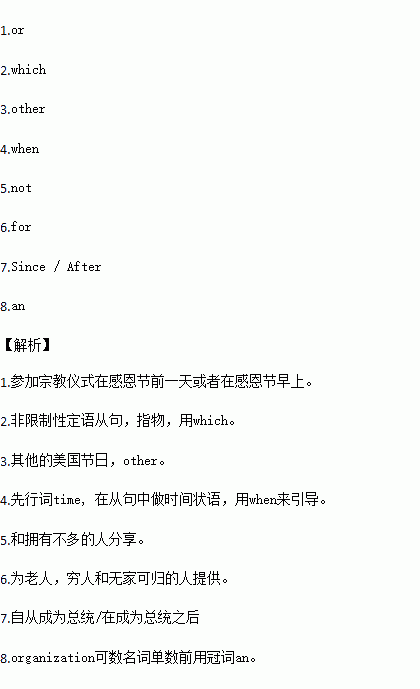题目内容
Part Ⅳ Writing (50 marks)
Section A (12 marks)
Directions: Complete the following passage by filling in each black with one word that best fits the context.
Thanksgiving is celebrated every year on the fourth Thursday of November. Some Americans attend religious services on the day before Thanksgiving, on Thanksgiving morning. Others travel great distances to be with their families. They have a large dinner, is the main part of the celebration.
More than any American holiday, Thanksgiving celebrates family and home. For many Americans, Thanksgiving is the only time when all members of a family gather together. The holiday is a time of family reunion.
Thanksgiving is also a time Americans share what they have with people who do have as much. All across the country, thousands of groups provide Thanksgiving meals older adults, poor people and the homeless. Some people spend part of the holiday helping to prepare and serve meals. becoming president, Barack Obama and his family have volunteered one day before each Thanksgiving at organization that helps the needy.

